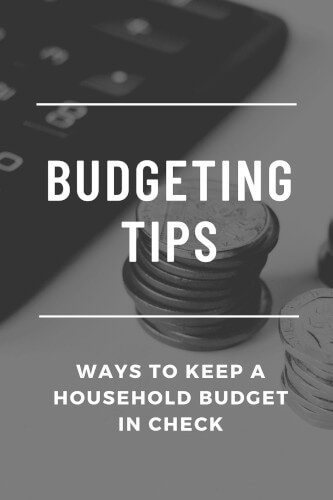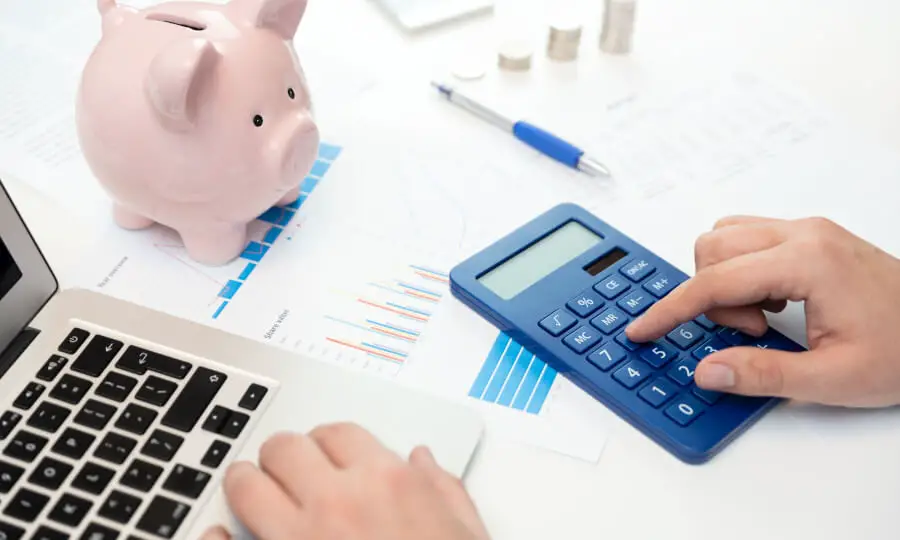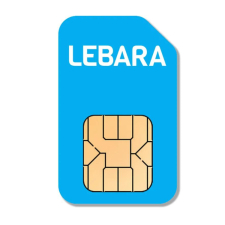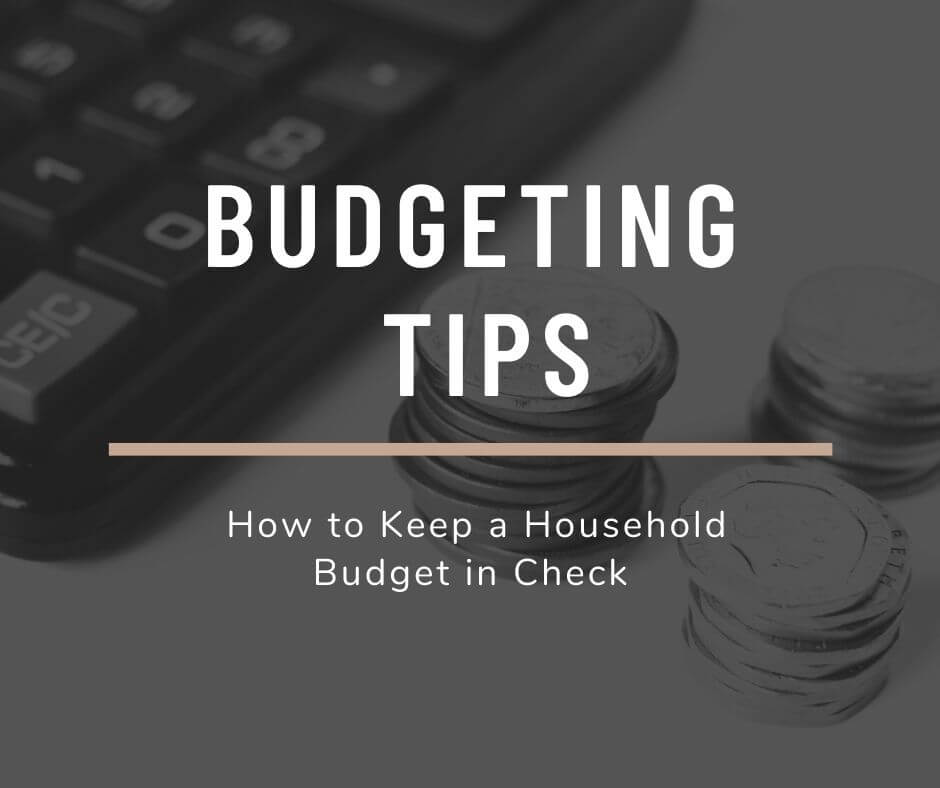Every household should have a budget that suits their lifestyle and income. Whether you're a large family on benefits, a single person with a large salary, or a couple on a low income, everyone needs a suitable budget.

There are plenty of free tools to help with budgeting, from apps to printable spreadsheets and automated saving schemes. This article explores all the best ways to suit individual circumstances and incomes, and how to get started, step-by-step.
Budgeting Tips
From start to finish, this guide will help you create your budget and successfully manage it year after year. Here are the steps you need to take to start your 2024 budget.

What is a Budget?
A budget is a plan for your money. It’s tailored to your family's individual needs and should represent more financial freedom and less stress in your everyday life - when adhered to.
Basically put, your budget is made up of dividing your income (be it low or high) between needs, wants, savings, and debt repayments.
How to Start a Budget
Grab a spreadsheet (I use Google Drive), print off a free monthly budget template, or you can even use pen and paper - whichever suits you best, to get started. Nothing fancy required. Just somewhere to input or write information.
Step 1 - Calculate your Income
The first step to creating a budget is to calculate your total monthly income, this must include any employed or self-employed earnings, side hustle earnings such as eBay sales, babysitting payments, and any online declarable earnings.
Example:
Self Employed income: £2000
eBay Sales: £500
Online Side hustles: £100
Total income = £2600
Step 2 - Calculate your Expenses
When calculating your outgoing expenses, you must only include your fixed expenses (also known as necessary expenses). These are household expenses that you MUST pay, such as rent/mortgage, utility bills, and grocery shopping.
Example:
Rent: £500
Gas/Electric £120
Phone/Internet/mobiles: £90
Water: £60
Loan: £50
Groceries: £400
Car expenses £200
TV Licence £15
Insurances £50
Total = £1485
Some expenses do fluctuate, so you can use an average, I use my previous year's totals and divide them by 12 for my average.
This task may seem daunting if you have a lot of outgoings. But it’s really important to use as close to exact numbers as you can because it’ll make your budget as accurate as possible.
Step 3 - Set your Financial Goals
It's important to set these goals prior to allowing yourself any of life's luxury purchases such as nights out, entertainment, and takeaways. Your financial goals should include paying off any debts you have and any savings you wish to accumulate.
You should think about your financial goals as “expenses” and enter them into your budget. This will get you in the habit of not overspending, and saving for your financial goals, which is necessary for success.
From our above example, we have £2600 coming in and £1485 going out, leaving us with £1115 to play with per month.
Next, decide what you want to pay off, what you want to save, and write down your financial goals.
Example:
Pay off £2000 catalogue debt in 1 year = £167 p/m
Save £2000 for Christmas in 1 year = £167 p/m
Create an emergency fund = £100 p/m
Monthly Float = £100
Total = £534
Use our free printable Yearly Savings Spreadsheet to easily plan out and track your savings goals
Step 4 - Non-Essential Expenses
Non-essential item examples include entertainment (such as Nextflix), eating out, gifts, holidays, subscriptions such as Amazon Prime and clothes.
So now we have worked out our income, deducted necessary expenses, and set the financial goals we have a balance, as follows...
Income: £2600
Fixed Outgoings: £1485
Savings/Debts: £534
Monthly Float: £100
Total Left = £581
Step 5 - Calculate Non-Essential Expenses
Now you have completed steps 1-4 you know how much you have left to spend on your luxury purchases (£581 in this example), so write them down...
Example:
NetFlix: £16.99
Sky TV £19.99
Nights out £100
Takeaways/Eating out £100
Amazon Prime £6.99
Amazon Music £2.99
Birthday Budget £100
Clothes/Uniform £100
Kids days out £50
Total = £496.99
This budget is easily doable and leaves me with £84 each month.
Step 6 - Implement and adjust your Budget (if needed)
If your budget looks good, great! Implement it.
If you get a negative number after all your calculations, this means you’re spending more money than you take home (this is not good).
You need to adjust your budget by decreasing some of your non-essential expenses, finding a way to increase your income, or finding ways to reduce your essential bills - such as switching providers or meal planning, to reduce these costs.
Remember to always monitor your budget and make changes as needed. Keep going and let your budget be the system that helps you achieve financial freedom.
Budgeting Tips
Never allocate your Entire Income to your Budget
In life, there are ALWAYS unexpected expenses throughout the month such as the children being invited to parties, or an old friend inviting you out for coffee, which you shouldn't dip into your emergency fund for.
So make sure you leave a small float of around £20 per week / £100 per month for 'Just in case'.
Track Your Progress
Keep your budget goals in a visible place, this simple tip can help you focus and concentrate on maintaining and tracking progress. Pin a printable budget template on your kitchen corkboard, use a free budgeting app such as 'Money Dashboard' so that it's always to hand, or create a spreadsheet on a popular platform such as Google Drive will also suffice.
Hang in There
One thing you should keep in mind is that your budget is only useful if you actually follow it. So if you find yourself straying, try to make adjustments that suit your lifestyle, rather than giving up. With any luck, you'll enjoy a financially successful 2024.
Accuracy is key
It's so easy to misjudge how much you spend per month on things like groceries. You might think you spend £400 a month but it could well be more with those extra trips to the shop we all do. You will need accurate figures to create and achieve a budget.
So rather than guess at your expenses, verify them. Keep receipts, check through bank accounts and credit card statements to see exactly what each category has cost you in the past year
Make Your Budget a Priority
Make sure your financial goals are being met before spending on non-essential items. For example, it’s a very unwise financial decision to go on a holiday or have a night out if you don’t have an emergency fund in place
Stick at it
The first few months of budgeting can be tough, especially if you're not used to saving and are used to spending frivolously prior to starting, it can feel like a chore. Stick with it, it gets easier and in the long run and is totally worth it.
As always, if you have any questions or anything you feel should be added to this article that will help others, please let us know in the comments below...





























